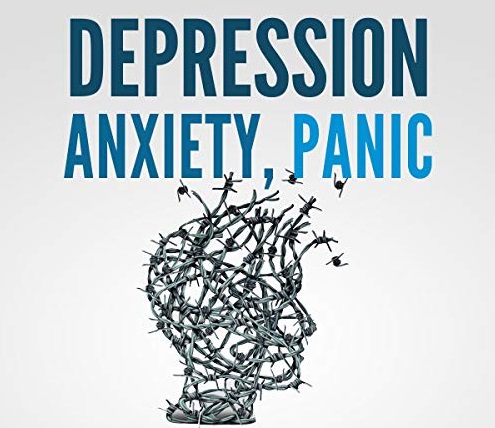
The Science Behind Exercise Reducing Symptoms of Depression: The Connection Between Physical Activity and Mental Health
Depression, a prevalent mental health disorder, affects millions of people worldwide. It is characterized by persistent feelings of sadness, loss of interest in activities, and various physical and emotional problems. While traditional treatments such as medication and therapy are commonly prescribed, an increasing body of research highlights the significant role of exercise in alleviating symptoms of depression.
The content provided below delves into the scientific mechanisms by which physical activity promotes mental stability and reduces depressive symptoms, underscoring the importance of a healthy lifestyle for mental well-being.
The Biological Mechanisms
- Neurotransmitter Regulation
Exercise influences the levels of several key neurotransmitters in the brain, including serotonin, dopamine, and norepinephrine. These chemicals play crucial roles in mood regulation and overall mental health.
- Serotonin: Often dubbed the “feel-good” neurotransmitter, serotonin levels are typically lower in individuals with depression. Exercise increases the availability of tryptophan, a precursor to serotonin, thereby enhancing serotonin production and improving mood.
- Dopamine: Associated with the brain’s reward system, dopamine levels can be boosted through physical activity. This increase enhances feelings of pleasure and motivation, counteracting the apathy and lethargy commonly seen in depression.
- Norepinephrine: This neurotransmitter is linked to arousal and alertness. Exercise raises norepinephrine levels, helping to reduce the cognitive and physical fatigue associated with depression.
- Endorphin Release
Endorphins, often referred to as the body’s natural painkillers, are released during exercise. These peptides interact with the brain’s opiate receptors, reducing the perception of pain and triggering a positive feeling in the body, similar to that of morphine. The “runner’s high,” a euphoric sensation experienced after prolonged aerobic exercise, is a direct result of endorphin release.
- Brain-Derived Neurotrophic Factor (BDNF)
BDNF is a protein that supports the survival, development, and function of neurons. Regular physical activity increases BDNF levels, which promotes neurogenesis (the formation of new neurons) and synaptic plasticity (the ability of synapses to strengthen or weaken over time). These processes are crucial for learning, memory, and cognitive function, all of which can be impaired in depression.
- Inflammatory Markers
Depression has been linked to increased levels of pro-inflammatory cytokines, which can affect brain function. Exercise has anti-inflammatory effects, reducing the levels of these cytokines and thereby mitigating their impact on the brain. This reduction in inflammation is associated with improvements in mood and cognitive function.
Psychological and Social Benefits
- Stress Reduction
Exercise acts as a natural stress reliever. Physical activity reduces the levels of cortisol, the body’s primary stress hormone. Lower cortisol levels help mitigate the negative effects of stress on the body and mind, which can be particularly beneficial for individuals with depression.
- Improved Sleep
Regular exercise promotes better sleep quality and duration, which is often disrupted in individuals with depression. Adequate sleep is essential for emotional regulation and cognitive function, contributing to overall mental stability.
- Boost in Self-Esteem and Confidence
Achieving fitness goals and improving physical health can enhance self-esteem and confidence. These psychological benefits are particularly important for individuals with depression, who often struggle with low self-worth and feelings of helplessness.
- Social Interaction
Many forms of exercise, such as team sports or group fitness classes, provide opportunities for social interaction. Building social connections can alleviate feelings of isolation and loneliness, which are common in depression. Engaging in shared activities fosters a sense of community and belonging, further supporting mental health.
Practical Implications
- Types of Exercise
Various types of exercise can be beneficial for reducing symptoms of depression, including aerobic activities (e.g., walking, running, cycling), resistance training (e.g., weightlifting), and mind-body exercises (e.g., yoga, tai chi). The key is to find an enjoyable and sustainable form of physical activity.
- Exercise Prescription
While the optimal amount of exercise can vary, general guidelines suggest aiming for at least 150 minutes of moderate-intensity aerobic activity or 75 minutes of vigorous-intensity activity per week, combined with muscle-strengthening activities on two or more days per week. Starting with small, manageable goals and gradually increasing intensity and duration can help individuals build a consistent exercise routine.
- Integration with Traditional Treatments
Exercise should be viewed as a complementary approach rather than a replacement for traditional depression treatments. Combining physical activity with medication, psychotherapy, and other therapeutic interventions can provide a more comprehensive treatment plan, tailored to the individual’s needs.
The scientific evidence supporting the role of exercise in reducing symptoms of depression is compelling. Through a combination of biological, psychological, and social mechanisms, regular physical activity promotes mental stability and enhances overall well-being.
Adopting a healthy lifestyle that includes regular exercise not only enhances physical health but also plays a crucial role in combating depression. Encouraging people to integrate physical activity into their daily lives can lead to notable improvements in mood, cognitive function, and overall quality of life. It’s essential to recognize that the connection between mind and body has transformed our understanding of their interdependence; mental and physical health cannot be separated if one aims to live a fulfilling life. One cannot achieve optimal mental health without physical well-being and vice versa, as they are mutually reliant.
We must strive for balance in our lives, recognizing that neglecting one aspect will inevitably impact the other. To achieve remarkable outcomes, both mental and physical health must receive equal attention, regardless of individual perceptions of their importance. Taking care of both body and mind is crucial, as they are the only “vehicles” we have for our life’s journey.


Understanding the mystery of inherited trauma: Identifying signs and navigating triggers. The difficulties individuals encounter in addressing PTSD stemming from isolated incidents.

Understanding inherited trauma involves delving into the concept of intergenerational transmission of trauma, where the emotional pain and unresolved issues from past generations are passed down to subsequent ones. This phenomenon is rooted in the idea that traumatic experiences can leave lasting imprints on individuals’ psyches, affecting not only their own mental health but also that of their descendants. Inherited trauma can manifest in various ways, including through behavioral patterns, emotional responses, and relational dynamics.
Identifying signs of inherited trauma requires a nuanced understanding of how past experiences continue to influence present-day behaviors and attitudes. These signs may include recurring themes in family narratives, persistent feelings of fear or anxiety, difficulties forming healthy attachments, and patterns of self-destructive behavior. Additionally, individuals may exhibit symptoms of post-traumatic stress disorder (PTSD) without directly experiencing the traumatic event themselves, indicating a potential link to inherited trauma.
Navigating triggers associated with inherited trauma can be challenging due to their often subtle and subconscious nature. Triggers are stimuli or events that evoke intense emotional or physiological reactions linked to past traumatic experiences. These triggers can be external, such as certain sights, sounds, or smells, or internal, such as intrusive thoughts or memories. Recognizing and managing triggers requires developing self-awareness, learning coping strategies, and often seeking professional support to process unresolved emotions and trauma-related responses.
The complexities of inherited trauma extend beyond individual experiences to encompass familial and cultural narratives. Family systems theory suggests that patterns of behavior and relational dynamics within families can be influenced by past traumas and unresolved conflicts. These dynamics may perpetuate cycles of dysfunction and exacerbate the impact of inherited trauma on subsequent generations. Cultural factors also play a significant role in shaping how trauma is experienced and transmitted, with certain communities disproportionately affected by historical traumas such as colonization, slavery, or genocide.
Addressing PTSD stemming from isolated incidents involves understanding the unique challenges faced by individuals who have directly experienced traumatic events. PTSD is a mental health condition characterized by persistent symptoms such as intrusive thoughts, flashbacks, hypervigilance, and avoidance behaviors. These symptoms can significantly impair individuals’ functioning and quality of life, making it essential to seek appropriate treatment and support.
Individuals with PTSD may face barriers to accessing care, including stigma surrounding mental health issues, lack of awareness about available resources, and financial constraints. Additionally, cultural factors and societal attitudes toward trauma and mental health may influence individuals’ willingness to seek help and disclose their experiences. Overcoming these barriers requires destigmatizing mental health issues, increasing access to culturally competent care, and promoting education and awareness about trauma and its effects.
Effective treatment for PTSD often involves a combination of therapy, medication, and support from loved ones. Cognitive-behavioral therapy (CBT), eye movement desensitization and reprocessing (EMDR), and exposure therapy are among the evidence-based approaches used to address PTSD symptoms. These therapies aim to help individuals process traumatic memories, challenge distorted beliefs, and develop coping skills to manage distressing symptoms.
To sum up what was discussed earlier in this article, understanding inherited trauma and addressing PTSD stemming from isolated incidents require a multifaceted approach that acknowledges the interplay of individual, familial, and cultural factors. By recognizing the signs of inherited trauma, navigating triggers, and accessing appropriate support and treatment, individuals can begin the journey toward healing and resilience. It is essential to promote awareness, reduce stigma, and advocate for accessible and culturally responsive mental health care to support those affected by trauma.


Power of meditation: Can meditation help you reduce the symptoms of anxiety and what are the long term benefits of such a practice?
Meditation has emerged as a powerful tool in managing and reducing the symptoms of anxiety. At its core, anxiety often stems from the mind’s tendency to ruminate on past events or worry about the future, leading to heightened stress levels and a sense of unease. Through regular meditation practice, individuals learn to cultivate present-moment awareness, gently guiding their attention away from intrusive thoughts and towards the sensations of the here and now.
One of the key mechanisms through which meditation mitigates anxiety is by inducing a state of relaxation and calmness. By focusing on the breath or a specific point of attention, practitioners engage in deep, diaphragmatic breathing, activating the body’s relaxation response and counteracting the physiological arousal associated with anxiety. This deliberate shift in focus helps to interrupt the cycle of anxious thoughts and bodily tension, promoting a sense of tranquility and ease.
Moreover, meditation encourages individuals to develop a non-judgmental attitude towards their thoughts and emotions. Rather than becoming entangled in the content of their anxious thoughts, practitioners learn to observe them with a sense of detachment and curiosity. This mindful awareness allows individuals to recognize their thoughts as transient mental events, rather than rigid representations of reality. By creating space between themselves and their anxious thoughts, individuals develop greater resilience and emotional regulation, reducing the intensity and frequency of anxiety symptoms.
Beyond its immediate calming effects, the long-term benefits of meditation for anxiety are profound and multifaceted. Through consistent practice, individuals cultivate greater self-awareness and insight into the underlying patterns and triggers of their anxiety. By becoming attuned to the early warning signs of anxiety, practitioners can intervene proactively, implementing coping strategies and relaxation techniques before symptoms escalate.
Furthermore, meditation fosters a sense of inner peace and equanimity that transcends the fluctuations of external circumstances. As individuals deepen their meditation practice, they develop a heightened capacity to navigate life’s challenges with grace and resilience. Rather than becoming overwhelmed by stressors or setbacks, practitioners learn to respond with greater clarity, compassion, and perspective.
Importantly, the benefits of meditation extend beyond the realm of mental health, exerting positive effects on physical well-being as well. Research has shown that regular meditation practice is associated with reduced inflammation, improved immune function, and lower blood pressure—all of which contribute to overall resilience and vitality.
In essence, meditation offers a holistic approach to anxiety management, addressing its psychological, emotional, and physiological dimensions. By fostering present-moment awareness, cultivating self-compassion, and promoting physiological relaxation, meditation empowers individuals to break free from the grip of anxiety and cultivate a deeper sense of well-being and fulfillment in their lives.


The many ways that depression influences sleep patterns: From insomnia to hypersomnia (not always symptom of narcolepsy).
Depression can significantly influence your daily sleep in various ways. Individuals experiencing depression often struggle with initiating and maintaining sleep due to persistent negative thoughts, worries, and a sense of hopelessness. This can result in a fragmented sleep pattern with frequent awakenings throughout the night. Depression may also lead to changes in sleep architecture, affecting the different stages of sleep, including REM sleep crucial for emotional regulation. Some individuals may experience hypersomnia, sleeping excessively despite persistent fatigue. Waking up in the morning becomes challenging, accompanied by feelings of lethargy and a lack of motivation. Depression can disrupt the natural circadian rhythm, causing irregular sleep patterns and variations in bedtime and wake-up times. Physical symptoms associated with depression, such as aches and pains, can contribute to discomfort during sleep. Medications prescribed for depression may also impact sleep, causing side effects like insomnia or daytime drowsiness. Additionally, depression often coexists with other sleep disorders, complicating sleep issues further. Addressing both the underlying depression and associated sleep disturbances is essential for overall well-being.

Let’s delve into a detailed exploration of how depression can affect sleep, potentially leading to harmful physical consequences in the context of sleep deprivation.
Depression can manifest in various ways that disrupt sleep:
Insomnia:
- Difficulty Falling Asleep: Depressed individuals may struggle to relax and initiate sleep due to persistent worry, rumination, and a racing mind.
- Frequent Awakenings: Once asleep, individuals with depression may experience numerous awakenings during the night, caused by nightmares, anxiety, or a general sense of restlessness.
Hypersomnia:
- Excessive Sleep: Conversely, some individuals with depression may experience hypersomnia, characterized by excessive sleep, either through extended nighttime sleep or increased daytime napping.
- Difficulty Waking Up: People with depression may find it challenging to wake up in the morning, often feeling groggy, lethargic, and lacking motivation to start the day.
Changes in Sleep Architecture:
- Altered REM (Rapid Eye Movement) Sleep: Depression can disrupt the normal cycling of sleep stages, potentially leading to changes in REM sleep. This stage is crucial for emotional processing and regulation, as indicated by some studies.
Sleep Fragmentation:
- Restless Sleep: Depression can result in a restless and fragmented sleep, with individuals tossing and turning, shifting positions frequently throughout the night. This can contribute to a sense of unrefreshed sleep.
Circadian Rhythm Disruption:
- Irregular Sleep-Wake Patterns: Depression may interfere with the body’s natural circadian rhythm, causing irregular sleep-wake patterns. This can result in inconsistent bedtimes and wake-up times.
Physical Symptoms:
- Pain and Discomfort: Depression is often associated with physical symptoms, including aches and pains. These discomforts can interfere with finding a comfortable sleeping position, potentially contributing to sleep disturbances.
Medication Effects:
- Side Effects of Antidepressants: Some antidepressant medications can impact sleep. While they may eventually alleviate depressive symptoms, they can initially lead to changes in sleep patterns, such as insomnia or drowsiness.
Sleep Disorders Comorbidity:
- Overlap with Other Sleep Disorders: Depression is commonly comorbid with other sleep disorders, such as insomnia disorder or sleep apnea. The combination of these conditions can worsen sleep disturbances.
It’s crucial to recognize that the relationship between depression and sleep is bidirectional. Poor sleep can contribute to the development or worsening of depressive symptoms. Addressing both the underlying depression and associated sleep disturbances is vital for overall well-being. If someone experiences persistent sleep problems or depressive symptoms, seeking guidance from a healthcare professional is advisable for proper evaluation and assistance.

It is crucial to discuss practical approaches for enhancing sleep. While these strategies may prove beneficial for some individuals, their effectiveness can vary. It is essential to experiment and identify the strategy that works best for you and yields optimal results.
- Maintain a Consistent Sleep Schedule: Go to bed and wake up at the same time daily, fostering a stable internal body clock.
- Develop a Relaxing Bedtime Routine: Engage in calming pre-sleep activities like reading, taking a warm bath, or practicing relaxation exercises to signal winding down.
- Create an Optimal Sleep Environment: Make your bedroom comfortable and sleep-friendly with darkness, quietness, and a cool temperature. Invest in a comfortable mattress and pillows.
- Minimize Screen Exposure Before Bed: Avoid screens (phones, tablets, computers) at least an hour before bedtime to prevent interference with melatonin production.
- Be Mindful of Food and Drink: Steer clear of heavy meals, caffeine, and nicotine close to bedtime, as they can disrupt sleep and impact its quality.
- Incorporate Regular Exercise: Engage in physical activity, but avoid intense exercise close to bedtime. Regular exercise promotes better sleep, particularly if done earlier in the day.
- Manage Stress: Practice stress-reduction techniques such as meditation, deep breathing, or mindfulness to calm the mind and encourage relaxation.
- Limit Napping: If napping is necessary, keep it brief (20-30 minutes) and schedule it earlier in the day to avoid disrupting nighttime sleep.
- Evaluate Your Sleep Environment: Ensure your bedroom is conducive to sleep by considering blackout curtains, white noise machines, or earplugs if needed.
- Control Liquid Intake Before Bed: Reduce the consumption of liquids close to bedtime to minimize the likelihood of waking up for bathroom trips during the night.
- Address Underlying Sleep Disorders: If sleep troubles persist, seek guidance from a healthcare professional to rule out underlying issues and explore suitable interventions.
- Explore Mind-Body Techniques: Try relaxation methods like progressive muscle relaxation, guided imagery, or biofeedback to calm both the mind and body.
- Consider Cognitive Behavioral Therapy for Insomnia (CBT-I): This structured program targets thoughts, beliefs, and behaviors contributing to insomnia, offering an evidence-based approach for improving sleep.
Remember, responses to these strategies vary among individuals, so experimentation may be needed to find what works best for you. If sleep difficulties persist, consulting a healthcare professional for personalized guidance is advisable.
Learn More
Discover yourself through various opportunities to attain professional success by managing episodes of anxiety through positive rituals and healthy long term habits.
In the journey toward your professional aspirations, it’s important to acknowledge the unique challenges anxiety may bring. Remember, you are not defined by your struggles; rather, your strength lies in facing them with resilience and determination. Embrace the fact that success is a journey, not a destination. Your path may have hurdles, but each obstacle is an opportunity for growth. Allow yourself the grace to learn and evolve, understanding that setbacks do not diminish your worth.
Amid the pressure to perform, recognize the power within you to overcome self-doubt. Your abilities are not diminished by anxiety; they are enhanced by the strength it takes to confront challenges head-on. Forge connections with those around you, for a strong support system can be a beacon in times of uncertainty. Share your journey, and you’ll find that vulnerability can be a source of strength.
Every step forward, no matter how modest, is a testament to your perseverance. Success is not solely measured by grand achievements but by the daily courage to press on. Learn to embrace self-compassion. Acknowledge that it’s okay to not have all the answers, and it’s okay to seek help. Your well-being is paramount, and seeking support is a sign of strength, not weakness.
In the face of anxiety, cultivate a mindset of self-belief. You are not an impostor; you are on a journey of continuous growth. Your unique perspective, shaped by your experiences, contributes to the richness of your professional endeavors.
Remember, success is a tapestry woven with threads of resilience, courage, and self-discovery. As you navigate your path, may you find solace in the knowledge that your journey, with all its twists and turns, is uniquely yours, and it’s leading you toward a future where your dreams unfold with grace and purpose.
Keep moving forward with faith in your capabilities and the unwavering belief that you have the strength to overcome. Your success story, marked by triumphs over adversity, is an inspiration to those who follow in your footsteps.
To increase your chances of achieving professional success in your career while still dealing with the intricacies of the burden of anxiety, it is crucial to incorporate and implement daily rituals and cultivating healthy long-term habits into your routine. Some are listed below for your perusal:
Mindful Morning Routine: Establish a mindful morning routine that includes activities like meditation, deep breathing exercises, or affirmations. Starting the day with a positive mindset can set the tone for success.
Goal Setting and Prioritization: Clearly define your career goals and break them down into achievable tasks. Prioritize tasks based on importance, and focus on completing them one step at a time to reduce overwhelming feelings.
Effective Time Management: Develop a structured schedule that allocates specific time slots for work, breaks, and personal activities. Effective time management can help in maintaining a healthy work-life balance and reduce stress.
Regular Physical Exercise: Incorporate regular physical exercise into your routine. Exercise is not only beneficial for physical health but also contributes to mental well-being by releasing endorphins, reducing stress, and enhancing focus.
Mindfulness and Meditation: Practice mindfulness and meditation techniques to center yourself during moments of anxiety. These practices can improve concentration, enhance self-awareness, and foster a calm state of mind.
Healthy Nutrition: Maintain a balanced and nutritious diet to support both physical and mental health. Avoid excessive caffeine or sugary foods that may contribute to anxiety and adopt a diet rich in whole foods.
Effective Communication: Develop strong communication skills to express your thoughts and concerns effectively. Clear communication can help in preventing misunderstandings and reducing workplace stress.
Continuous Learning: Cultivate a mindset of continuous learning and professional development. Stay updated with industry trends and acquire new skills to boost your confidence and competence in your career.
Social Support and Networking: Build a strong support system by connecting with colleagues, mentors, or friends in the industry. Networking can provide valuable insights, advice, and a sense of camaraderie to navigate challenges.
Quality Sleep: Prioritize sufficient and quality sleep. Lack of sleep can exacerbate anxiety, affect cognitive function, and hinder professional performance. Establish a consistent sleep routine for optimal well-being.
Mindful Breaks: Take mindful breaks during the workday. Step away from your desk, practice deep breathing, or engage in a brief relaxation exercise to recharge and alleviate stress.
Reflection and Gratitude: Periodically reflect on your achievements and express gratitude for the positive aspects of your professional journey. Focusing on the positive can counterbalance anxiety and enhance your overall outlook.
Incorporating these strategies into your daily routine empowers you to skillfully handle anxiety, enhance your well-being, and lay the foundation for enduring career success. Refuse to let your mental health condition shape your identity. Maintaining a positive mindset and embracing a shift in attitude is crucial; this shift enables you to concentrate on your objectives and realize every dream you aspire to achieve.

Numerous strategies to cope with ongoing gaslighting from loved ones and those you care about when facing constant emotional manipulation and distortion of reality.

Experiencing gaslighting from someone you care about can be profoundly distressing for several reasons. It involves a breach of trust, where the person intentionally distorts reality and manipulates your perceptions, causing significant emotional pain, particularly when it originates from someone you trust. Gaslighting employs tactics like denial and blame-shifting, resulting in confusion, self-doubt, and emotional upheaval. The continuous dismissal and questioning of your reality can gradually erode your self-esteem and confidence, impacting your overall sense of self-worth.
This manipulation may also lead to isolation, as the gaslighter aims to discredit your relationships and foster dependence, creating obstacles to seeking support. Classified as a form of psychological abuse, gaslighting contributes to anxiety, depression, and symptoms resembling post-traumatic stress disorder (PTSD). It involves a loss of autonomy, with the gaslighter exerting control over your thoughts and actions, fostering a profound sense of powerlessness. The resulting trauma extends beyond the specific relationship, affecting other connections and complicating issues of trust and open communication.
Victims may find it challenging to recognize the abuse or seek help due to the gaslighter’s undermining tactics (primarily someone who may have NPD), prolonging the trauma and impeding the process of liberating oneself from the abusive dynamic.
Dealing with ongoing gaslighting from loved ones requires employing various strategies to navigate emotional manipulation and reality distortion. Here are several approaches to consider:
- Self-awareness: Recognize and trust your feelings and perceptions. Maintain confidence in your own reality and resist doubting yourself.
- Set Boundaries: Establish clear boundaries with those who engage in gaslighting. Clearly communicate unacceptable behavior and enforce consequences if necessary.
- Seek Support: Reach out to friends, family, or a therapist for support. Share experiences and feelings with someone you trust to gain perspective and validation.
- Document Incidents: Keep a record of gaslighting incidents, noting dates, times, and specific behaviors. This documentation can serve as a reference point and validation.
- Educate Yourself: Learn about gaslighting and manipulation tactics. Understanding these behaviors can empower you to recognize and resist them.
- Maintain Independence: Cultivate a strong sense of self and independence. Nurture interests, friendships, and activities outside of the gaslighting dynamic.
- Practice Self-Care: Prioritize self-care activities to maintain emotional well-being. Engage in activities that bring comfort, relaxation, and joy.
- Assertiveness: Practice assertiveness in communication. Clearly express feelings and concerns without compromising your truth.
- Professional Help: Consider seeking therapy to navigate emotional challenges and develop coping strategies.
- Limit Contact: If necessary, distance yourself from individuals consistently engaging in gaslighting. Create a protective space for mental and emotional health.
Keep in mind that every situation is distinct, and these strategies may require adjustments to fit particular circumstances. If you are in an abusive relationship, it’s essential to seek professional help for your well-being. Always seek assistance from experts who comprehend these challenges, especially when dealing with personality disorders associated with Narcissistic behavior.


The many ugly faces of depression: What should you expect when experiencing Anhedonia and the many symptoms, causes and treatment that are available when dealing with it.

Anhedonia is closely associated with depression and is often considered a fundamental symptom of this mental health condition. It involves a diminished ability to find pleasure or interest in activities that were once enjoyable. Anhedonia can manifest as either a lack of interest or a reduced capacity to experience positive emotions.
In the context of depression, anhedonia serves as a significant indicator and contributes to the overall impact of the disorder. Depression is a complex mental health issue characterized by persistent feelings of sadness, hopelessness, and a lack of interest or pleasure in various activities.
The presence of anhedonia can lead to functional impairment in different aspects of life, affecting social relationships, work, and overall quality of life. It also influences motivation, making it difficult for individuals to initiate and sustain activities that could bring joy or satisfaction.
While anhedonia is closely linked to depression, it can affect individuals without them being explicitly depressed or feeling sad. It is also associated with other mental illnesses like schizophrenia and bipolar disorder. Scientists suggest that changes in brain activity, particularly in the production or response to dopamine, a “feel-good” mood chemical, may be related to anhedonia. Research indicates that dopamine neurons in the prefrontal cortex may be overactive in people with anhedonia, interfering with pathways that control how rewards are sought and experienced.
It’s crucial to recognize that anhedonia is just one facet of depression, and individuals with depression may experience a range of symptoms, including changes in sleep patterns, appetite disturbances, feelings of worthlessness, fatigue, and difficulty concentrating.
Treatment for depression typically involves a combination of psychotherapy, medication, and lifestyle adjustments. Addressing anhedonia is often a key component of treatment to help individuals regain the capacity to experience pleasure and engage in meaningful activities. Seeking professional help from a mental health provider is essential for an accurate diagnosis and appropriate treatment.
Researchers are exploring new treatments for people with anhedonia who do not respond to standard treatments like SSRIs and talk therapy. One promising option is ketamine, a medication with known antidepressant effects. More research is needed as to what medication works best so I wouldn’t go and ingest a bunch of ecstasy when being diagnosed with Anhedonia. It is important to thoroughly research the topic and get the proper health from medical experts.


The ugly friend of depression: How dietary changes can help you manage your depression symptom

Consuming appropriate food (eliminating refined sugar and heavy carbohydrates) is intricately linked to mental health through various physiological and biochemical processes. The connection between diet and mental well-being is intricate, involving numerous factors that can either support or undermine the direct connection between the body and mind. It is crucial to thoroughly reassess, address, and scrutinize everything you are about to consume. While occasional indulgence is acceptable, it should be infrequent throughout the year, not a daily occurrence. Moderation is essential, especially when it comes to substances that can harm your body. The transparency of healthy foods contrasts sharply with the fast food industry’s aversion to a health-conscious population. The fast food industry thrives on the addictive nature of ingredients, such as sugar, strategically incorporated into their products. Understanding how these additives can manipulate the physiological aspects of an individual and impact mental health is essential. Your food choices significantly influence your overall well-being.
Positive dietary changes can play a significant role in relieving depression symptoms due to the complex relationship between the gut and the brain, often referred to as the “gut-brain connection.” Several mechanisms contribute to how diet impacts mental health:

- Nutrient Intake: A balanced and nutrient-dense diet provides essential vitamins, minerals, and antioxidants that support brain function. For example, omega-3 fatty acids found in fish, flaxseeds, and walnuts are linked to better mental health.
- Serotonin Production: Serotonin is a neurotransmitter associated with mood regulation. Foods rich in tryptophan, an amino acid precursor to serotonin, can boost serotonin levels. These include turkey, chicken, eggs, nuts, and seeds.
- Gut Microbiota: The gut is home to trillions of microorganisms collectively known as the gut microbiota. Emerging research suggests that the composition of these microbes can influence mental health. A diet rich in fiber, prebiotics, and probiotics promotes a diverse and healthy gut microbiome, positively impacting mood.
- Inflammation Reduction: Chronic inflammation is linked to various mental health disorders, including depression. A diet high in anti-inflammatory foods, such as fruits, vegetables, and fatty fish, can help reduce inflammation in the body and potentially alleviate depressive symptoms.
- Blood Sugar Regulation: Fluctuations in blood sugar levels can impact mood and energy levels. Consuming complex carbohydrates, fiber, and protein can help stabilize blood sugar levels and prevent energy crashes, promoting more stable moods.
- Avoiding Trigger Foods: Some individuals may experience mood disturbances or increased inflammation in response to certain foods, such as refined sugars, processed foods, and excessive caffeine. Identifying and avoiding these trigger foods can be beneficial for mental health.
- Hydration: Dehydration can negatively affect mood and cognitive function. Maintaining adequate hydration by consuming water and other hydrating beverages is crucial for overall well-being.

It’s important to note that while dietary changes can be supportive, they are not a standalone solution for treating depression. Individuals experiencing depression should consult with healthcare professionals for a comprehensive treatment plan, which may include therapy, medication, and lifestyle modifications, including dietary changes.
Combining a balanced diet and regular exercise can significantly enhance your ability to manage symptoms of depression, though it should be noted that this approach is not a cure. Similar to addressing anger issues, there are no specific classes or pills that can entirely eliminate mood fluctuations, anger, or responses to triggers.
Initiating change has to start somewhere, prompting the reflection on the classic question: “What came first, the chicken or the egg?” Speculating on whether our prehistoric ancestors experienced depression due to their diet is challenging, considering the absence of refined foods during that era.
Despite advancements in our understanding of mental health, comprehending the complexities behind conditions like bipolar disorder, borderline personality disorder, chronic depression, anxiety, and others remains a challenge. The varying susceptibility of individuals to these challenges, as well as the severe consequences some endure, raises crucial questions. Psychiatrists and psychologists are continually striving to unravel these mysteries, seeking the most effective ways to address these complex issues. It is hoped that long-term solutions, particularly through the implementation of effective psychotherapeutic modalities, will be developed to confront and manage these challenges.
Learn More
Key strategies to maintaining proper mental health when being a caregiver: Anxiety can hit you at anytime, anywhere and frequently!

Adult caregivers exemplify remarkable selflessness in their commitment to loved ones, expressing unwavering dedication through sacrifice. They prioritize their loved ones’ needs above their own, demonstrating boundless compassion and empathy. Driven by a deep sense of responsibility and love, caregivers navigate challenges with grace, willingly setting aside personal desires for the well-being, safety, and happiness of their loved ones. Despite facing physical and emotional exhaustion, they give generously to enhance the quality of life, extending their selflessness beyond routine caregiving tasks. This profound expression of love showcases the depth of their compassion and the extraordinary lengths they go for their loved ones’ comfort and happiness.

Caregiving, while a noble and fulfilling role, can also come at a price, particularly in terms of anxiety. The responsibilities and challenges associated with caregiving can contribute to heightened anxiety levels for caregivers. Caregiving demands significant emotional, physical, and sometimes financial investments. The constant worry about the well-being of a loved one, coupled with the challenges of providing care, can lead to chronic stress and anxiety. Caregivers often face complex medical or emotional situations, difficult decisions, and the ongoing pressure to meet the needs of their loved ones. Moreover, caregivers may feel isolated or unsupported, lacking a robust network to share their experiences or seek assistance. The emotional toll of witnessing the suffering or decline of a loved one can be overwhelming, contributing to a sense of helplessness and anxiety. Below are some strategies that can help adult caregivers cope with anxiety and still keep their sanity:
- Self-Care Routine:
• Establish a consistent self-care routine that includes activities you enjoy, such as exercise, reading, or taking a leisurely walk.
• Prioritize sufficient sleep to ensure you are well-rested and better equipped to handle stress. - Healthy Lifestyle Choices:
• Maintain a balanced diet with nutritious food to support physical and mental well-being.
• Limit caffeine and sugar intake, as they can contribute to increased anxiety. - Mindfulness and Relaxation Techniques:
• Practice mindfulness meditation or deep-breathing exercises to stay present and calm the mind.
• Consider activities like yoga or tai chi that promote relaxation and stress reduction. - Set Realistic Expectations:
• Establish achievable goals and be realistic about what you can accomplish.
• Break larger tasks into smaller, more manageable steps to reduce feelings of overwhelm. - Effective Time Management:
• Prioritize tasks and organize your schedule to avoid unnecessary stress.
• Delegate responsibilities when possible, recognizing that you don’t have to do everything on your own. - Seek Support:
• Connect with friends, family, or support groups to share your feelings and experiences.
• Consider professional counseling or therapy to have a safe space to discuss and manage anxiety. - Boundaries:
• Set clear boundaries between work and personal life to prevent burnout.
• Learn to say no when necessary and communicate your limits to others. - Positive Affirmations:
• Replace negative thoughts with positive affirmations to cultivate a more optimistic mindset.
• Focus on your strengths and acknowledge your accomplishments, no matter how small. - Stay Informed:
• Educate yourself about anxiety, its triggers, and coping mechanisms to better understand and manage your own feelings.
• Attend workshops or seek resources on stress management techniques. - Professional Help:
• If anxiety becomes overwhelming, consider seeking help from a mental health professional.
• Therapy or counseling can provide valuable tools and strategies to navigate and overcome anxiety.
Remember, everyone’s experience with anxiety is unique, and finding what works best for you may involve a combination of these strategies. It’s essential to prioritize your mental health and well-being as a caregiver. While caregiving is a deeply rewarding experience, the associated challenges, demands, and emotional strain can take a toll on caregivers, potentially leading to anxiety. It is essential for caregivers to recognize the importance of self-care, seek support, and prioritize their own mental health to effectively navigate the challenges that come with caregiving.
Learn More
A proactive approach to anxiety: Antithesis of the big pharma (more reactive approach with drugs)

Anxiety has deep-rooted origins that stem from a combination of biological, psychological, and environmental factors. Biologically, it is linked to the body’s stress response system, involving the release of hormones like cortisol. Genetic predispositions may also contribute, as individuals with a family history of anxiety disorders may be more susceptible.
Psychologically, past traumatic experiences, high-stress environments, or a history of negative conditioning can contribute to the development of anxiety. Cognitive factors, such as persistent worry or irrational fears, play a role in sustaining anxiety.
Environmental factors, including early life experiences, societal expectations, and ongoing stressors, can significantly impact anxiety levels. Childhood experiences, such as trauma or a lack of emotional support, may contribute to the development of anxiety disorders later in life.
Additionally, personality traits, such as perfectionism or a tendency to overthink, may increase vulnerability to anxiety. The interplay of these biological, psychological, and environmental elements creates a complex web that contributes to the onset and persistence of anxiety. Understanding these factors is essential for developing effective strategies to manage and alleviate anxiety.
There are effective strategies for addressing anxiety attacks and implementing coping mechanisms to recognize signs before they dominate your thoughts and behavior. Completely eliminating all attacks is challenging without resorting to heavily numbing medications, a state that the pharmaceutical industry may prefer. However, there are holistic approaches to assess and significantly reduce symptoms. It’s important to note that this is not a foolproof method, as individuals experience and cope with anxiety differently, resulting in varied symptoms across the spectrum.
Managing your symptoms proactively is essential. Here are several strategies to help prevent anxiety before it takes hold:
- Deep Breathing and Mindfulness: Engage in deep breathing exercises to calm the nervous system. Focus on your breath and practice mindfulness to stay in the present moment.
- Positive Visualization: Imagine a positive outcome or a calming scenario. Visualization can help shift your focus away from anxious thoughts.
- Regular Exercise: Incorporate regular physical activity into your routine. Exercise releases endorphins, which act as natural mood lifters and stress relievers.
- Healthy Lifestyle Choices: Prioritize a balanced diet, adequate sleep, and hydration. A healthy lifestyle contributes to overall well-being and can reduce susceptibility to anxiety.
- Time Management: Plan and organize your tasks to avoid feeling overwhelmed. Break down large tasks into smaller, manageable steps.
- Limit Stimulants: Reduce or eliminate the consumption of stimulants such as caffeine and nicotine, especially in the hours leading up to potential anxiety-inducing situations.
- Establish a Routine: Create a daily routine that includes time for self-care, relaxation, and activities you enjoy. Predictability can help create a sense of stability.
- Connect with Others: Maintain a support network of friends, family, or colleagues. Sharing your feelings with others can provide perspective and emotional support.
- Learn to Say No: Maintain a support network of friends, family, or colleagues. Sharing your feelings with others can provide perspective and emotional support.
- Journaling: Write down your thoughts and feelings. Journaling can help you process emotions and gain insight into recurring patterns.
- Mind-Body Techniques: Explore mind-body techniques such as yoga or tai chi. These practices combine physical movement with mindfulness and can be effective in reducing anxiety.
- Professional Support: If anxiety is a persistent issue, consider seeking professional help. A therapist can provide coping strategies and support tailored to your specific needs.

Remember that everyone is different, and what works for one person may not work for another. It may take some trial and error to find the combination of strategies that works best for you. Additionally, if anxiety is significantly impacting your life, it’s crucial to consult with a mental health professional for personalized guidance and support.
Learn More